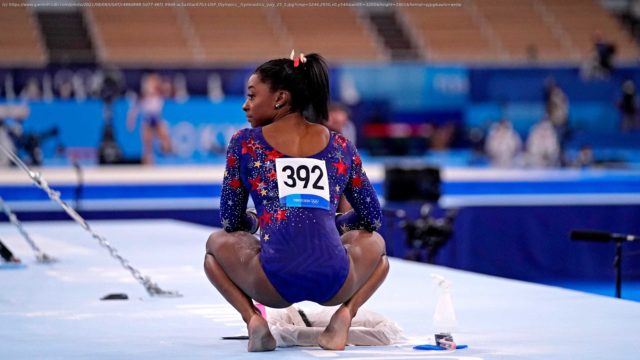It started with Simone Biles, and it was extraordinary.
The gymnast withdrew from competition at the Tokyo Olympics to focus on her mental health …
It started with Simone Biles, and it was extraordinary. The gymnast withdrew from competition at the Tokyo Olympics to focus on her mental health and a discussion began to spread. Noah Lyles, the American sprinter, burst into tears after finishing third in the 200 meters final and talked about battling depression and anxiety and taking antidepressants. A night later, after winning the silver medal in the women’s pole vault, Russian Anzhelika Sidorova said mental health is a “very personal thing,” but later acknowledged she sees a therapist. Maria Vicente, a heptathlete from Spain, praised Biles and said she too wanted to begin seeing a therapist after the Olympics. Whether it was in Russian, Spanish, English or other languages, athletes at these Games showed striking willingness to publicly acknowledge their mental health struggles, and bring a new level of awareness to the issues. Although the Tokyo Games were known for being contested amid a pandemic, it was COVID-19 that also exacerbated the feelings of anxiety, despair and loneliness. Training cycles were disrupted by a one-year postponement of the Olympics, and some athletes endured uncertainty around the qualifying process for the Games just months before the opening ceremony. In March, athletes learned family members, with the exception of some who were coaching them, would be prohibited from attending the Games. Mattie Rogers, a U.S. weightlifter, was among athletes who struggled without family support. Her husband remained at their home in Hawaii. “I called my husband, I was like, ‘I don’t know if I can do it. I’m so stressed. I’m so nervous,’ ” Rogers said. “And then (Biles) came out and she’s like, ‘Hey I’m struggling.’ And it just made me feel like I wasn’t the only one, and it gave me a little bit more courage to be here.» It was on July 27 when Biles abruptly withdrew from the women’s team final after dropping out of the air one twist short on the vault. Robert Andrews, a therapist who has worked with Biles and is the founder of the Institute of Sports Performance in Houston, said the gymnast speaking out not only helped her but sent a powerful message. «The expectations that come with being the GOAT… were too much for her nervous system, brain and body to handle,» Andrews said. «Shame and stigma of seeking out mental health support keeps many athletes from seeking help.» But Biles had gone beyond asking for help. She walked away from the script that called for her to win five gold medals and build on her status as the greatest gymnast of all time. «After the team final, we went to the village, and honestly I expected to feel a bit embarrassed,’’ Biles said, “and (athletes) were coming up to me saying how much I meant to them, how much I had done for their world. That was the craziest feeling ever. “In that moment, I was like, ‘There’s more than gymnastics and medals.’ » The day after Biles withdrew from the team final, cyclist Tom Dumoulin of the Netherlands served as a potential model for struggling athletes. In January Dumoulin stopped competitive cycling in part because of mental health concerns and only after a four-month layoff began preparing for the Olympics.
Домой
United States
USA — Art Will Tokyo Olympics be a game-changer in how we view athletes' mental...






